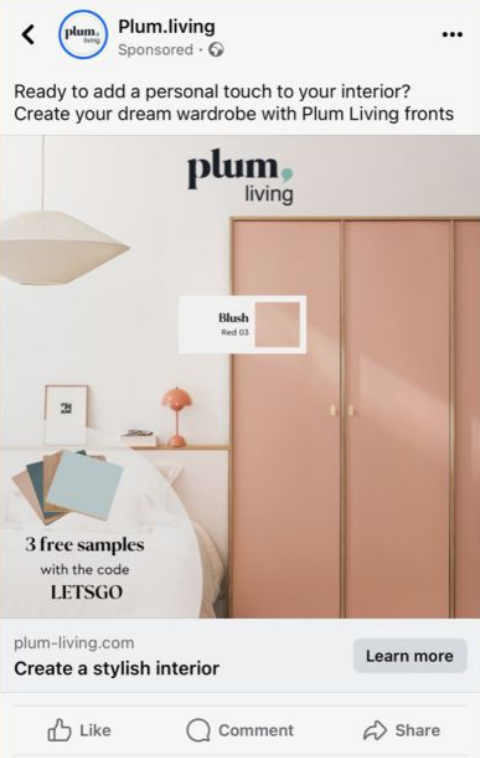Lead generation is often overlooked in the competitive, margin-driven world of e-commerce. Immediate transactions are the norm, and tactics typically focus on increasing sales at lower CPAs as quickly as possible. However, allocating some of your budget to building a list of high-purchase-intent prospects can become your competitive advantage. This approach can help reduce CPAs while boosting your conversion rates.
Why Should Your E-Commerce Brand Invest in Lead Generation?
1. The Death of Third-Party Data
The decline of cookies and third-party data—accelerated by Apple’s iOS changes, Facebook’s updated data access policies, and the EU’s data protection laws— means the data available to marketers is becoming increasingly restricted. As a result, targeting and running effective campaigns is becoming more challenging. We have less and less information about our potential audience. Additionally, AI algorithms heavily rely on data quantity and quality – the less data they have, the less effective they are.
As third-party data sunsets, first-party and zero-party data become crucial for understanding our audience and optimizing our algorithms. Unlike third-party data, which is aggregated from various sources and sold to advertisers, first-party data is proprietary and exclusive to your business. Owning and leveraging your own data provides a competitive edge, enabling more precise targeting and better-performing campaigns.
A lead generation strategy can help you quickly gain valuable first-party data. You’re not just acquiring email addresses; you’re taking control of your data and feeding it directly into your AI systems for enhanced performance.
2. Building Brand Value in a Competitive Market
Anyone working in e-commerce is aware of the growing competition. The industry is seeing a significant increase in big marketplaces with extremely cheap products dominating the advertising space. Competing against these cheap products requires extra effort from your brand. You need to ensure that potential customers understand your value, which involves educational efforts and time. When customers are aware of and trust your brand, they are more likely to choose your products over cheaper alternatives.
This is where lead generation comes in, helping you build brand awareness and demonstrate value before the customer is ready to buy. By acquiring potential customers earlier in the funnel, you have the opportunity to educate them about your brand’s unique value proposition.
3. Competing Against Bigger Retailers
Not only are you competing against extremely cheap products, you’re also competing against large retailers with massive advertising budgets. This makes it even more important to differentiate yourself and find cost-effective ways to reach your audience. A lead generation campaign can help you compete more effectively by reaching your potential audience when CPCs are cheaper and nurturing them until they are ready to buy.
Take Black Friday as an example. This period sees some of the highest CPCs and CPMs of the year. However, in their 2023 Black Friday report, Klaviyo highlights that 59% of users decide what to buy a month in advance. By running a lead generation campaign before the peak season, you can capture potential customers at a lower cost, nurturing them so they’re ready to purchase when the time comes.
How to Run Lead Generation Ads for E-Commerce
We can look at what B2B has been successfully running and adapt it to your e-commerce and your specific offer.
Here are some of the campaigns that have proven to be successful:
- Downloads:

Offer valuable content to potential users, such as style guides, how-to guides, beauty tips, or the latest trends. Downloads not only provide a great hook to collect relevant contact information but also position you as an authority in your niche.
- Free Demos or Samples:

You can also provide “free demos” in the form of samples that users can experience of your materials, color, or style. If that’s not possible, run free webinars, online events, or consultations. Find what can give extra value to your potential customer in exchange for their data.
- VIP Access:

Tease upcoming collections or sales, offering early access to those who subscribe to your newsletter. This creates a sense of exclusivity and urgency. You could offer VIP access to subscribers when launching a new clothing line, allowing them to purchase items before they become available to the general public.
- Quizzes:

Quizzes are becoming very popular in e-commerce because they offer a win-win scenario. Users get a more personalized experience tailored to their needs, while the brand gains access to highly relevant information about potential customers. Brands have seen significant boosts in conversion rates by using quizzes to recommend the right size, style, or product.
Tips for a Successful E-Commerce Lead Generation Campaign
To successfully implement a lead gen campaign in e-commerce, consider the following factors:
- Budget: Allocate about 15% of your overall marketing budget to lead generation.
- Planning: Start your lead generation campaign a couple of weeks before peak times, such as 2-3 weeks before events like Black Friday or January sales. Additionally, factor in the time needed for algorithm optimization against leads, typically 1-2 weeks.
- Tracking: Ensure you have lead form tracking codes set up for all your relevant submission forms. Use tools like Google Analytics and Facebook Pixel to monitor conversions and track user behavior. This data will help you refine your campaigns and improve performance over time.
- KPIs: Lead Generation campaigns also involve an extra layer in your reporting. These should include cost per lead (CPL), lead conversion rates, and return on investment (ROI).
- Testing: Testing is essential for finding what works best in your lead gen campaigns. Consider testing:
- The hook: What resonates best with your potential audience? Is it a download? A promotion? A quiz?
- Lead Ad forms vs Landing page: Platforms like Facebook and Google Ads offer lead ads with instant forms, so the user doesn’t need to leave the platform. While these ads may bring high quantities of leads, you may find that a form on a landing page brings better quality leads.
- Email Marketing: A strong email flow is critical for the success of a lead generation campaign. Before launching a lead gen campaign, ensure you have a strong email marketing flow. This might include a welcome email, a series of educational emails about your products, and special offers tailored to their interests. For example, if someone signs up for your newsletter through a quiz about their fashion preferences, send a welcome email thanking them for participating, followed by a series of emails showcasing products that match their style. Include personalized recommendations and exclusive discounts to encourage conversions.
Conclusion
Lead generation can be a game-changer for e-commerce businesses, providing a competitive advantage in the competitive ecommerce industry. By collecting first-party data, building brand value, and taking advantage of low CPC seasons, you can improve the efficiency of your campaigns while taking control of your own data and turning potential customers into loyal clients.




